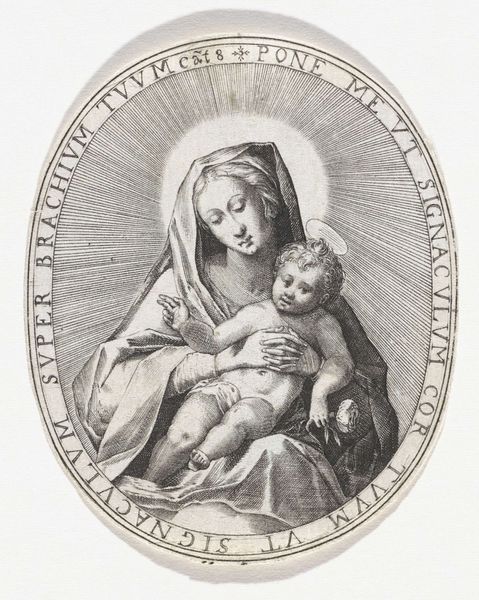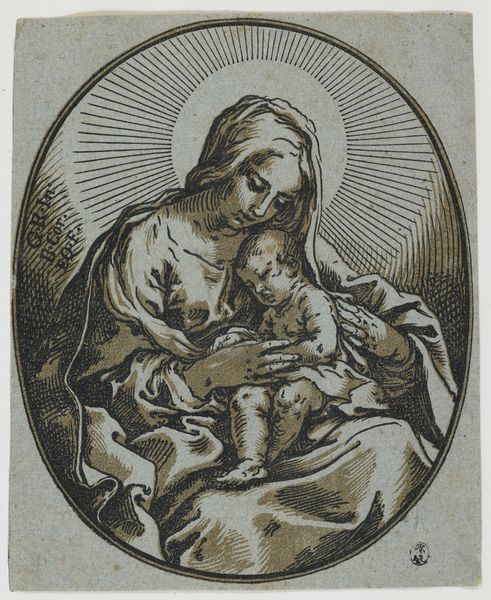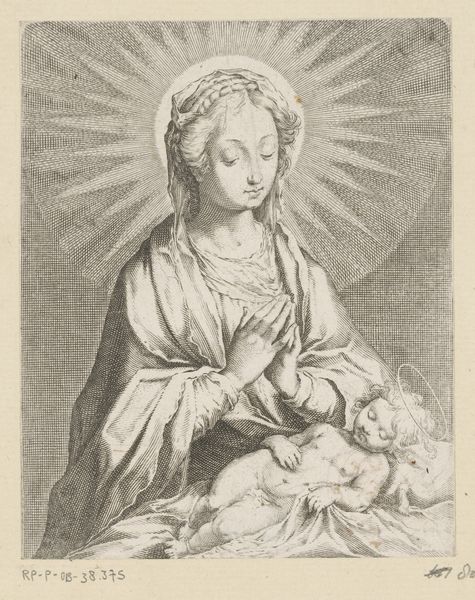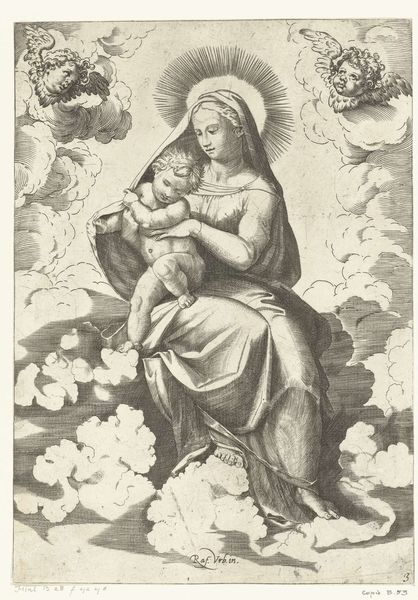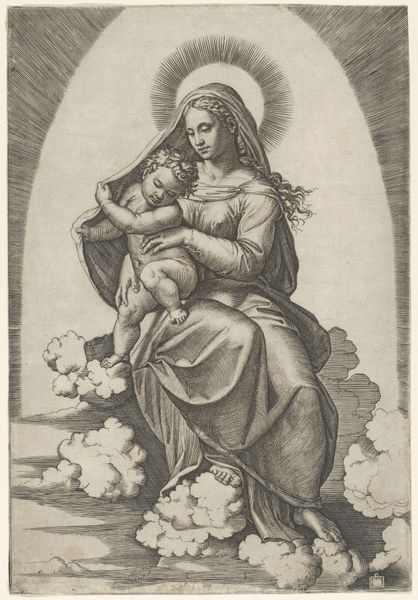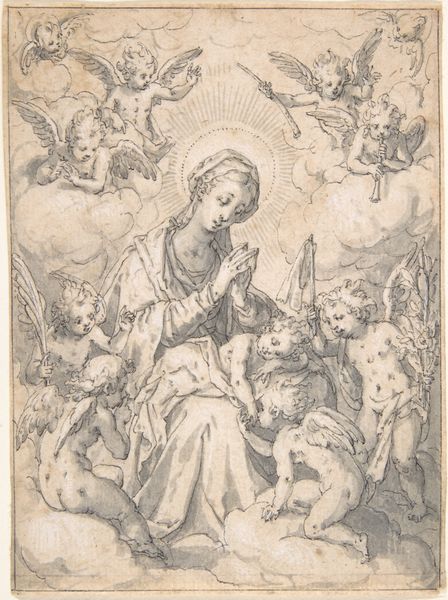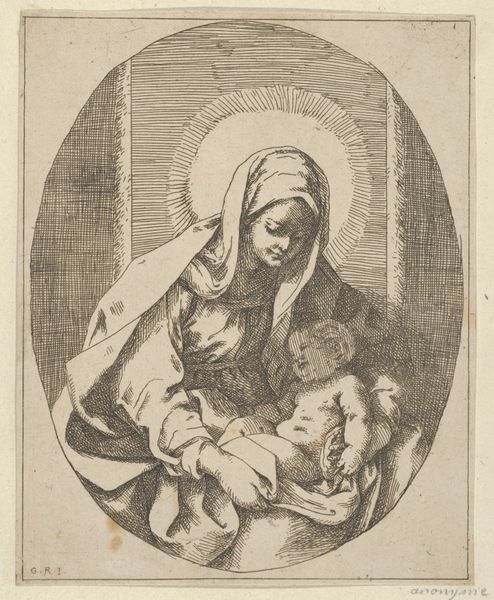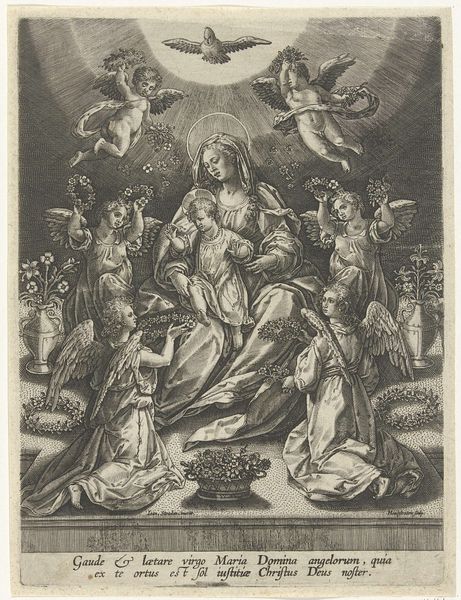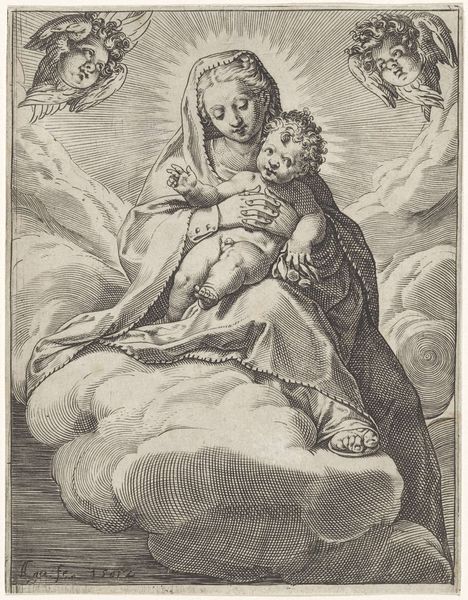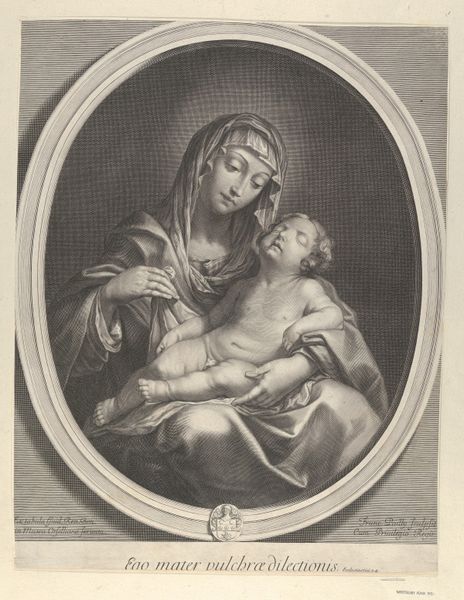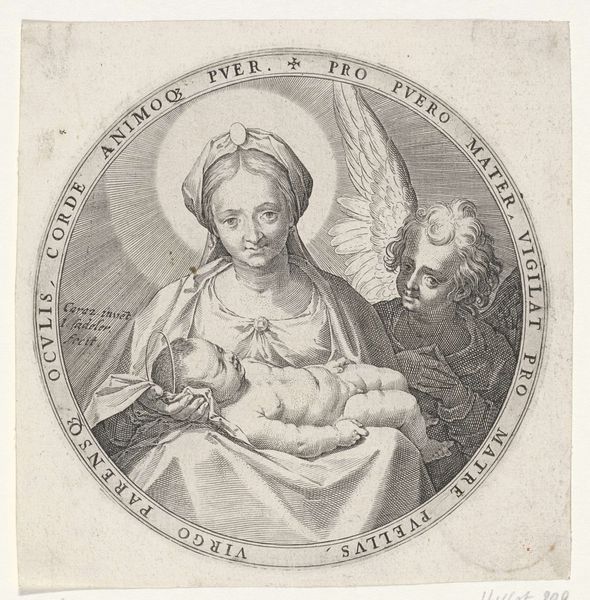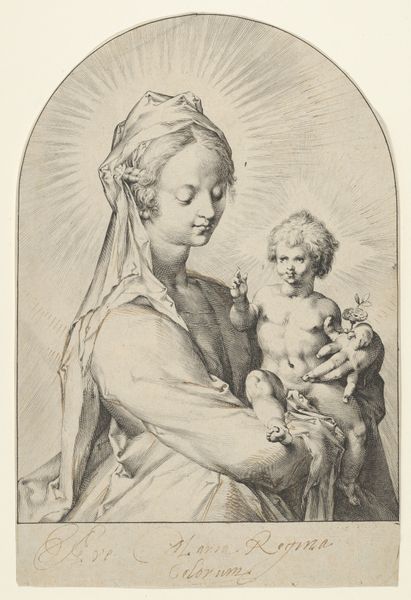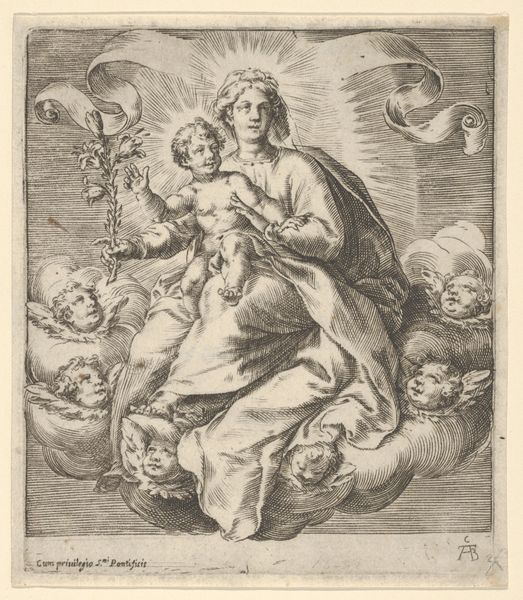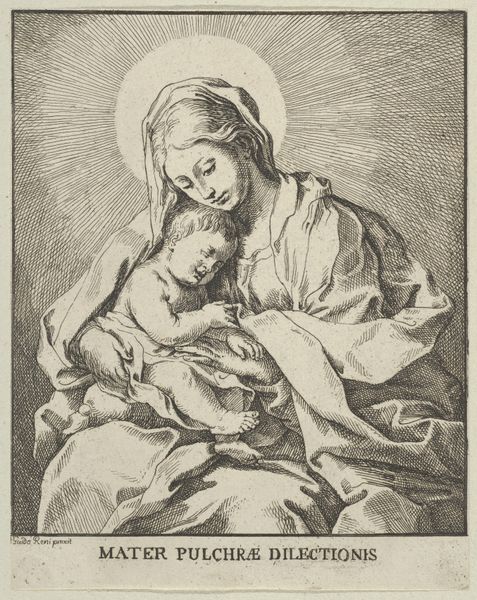
print, engraving
#
portrait
# print
#
old engraving style
#
caricature
#
figuration
#
history-painting
#
northern-renaissance
#
engraving
Dimensions: height 140 mm, width 107 mm
Copyright: Rijks Museum: Open Domain
Editor: Here we have "Madonna met het Christuskind" by Johann Sadeler I, created sometime between 1560 and 1600. It’s an engraving, so it’s monochromatic, but there’s something very tender about the way Mary is holding the Christ Child. How do you interpret this work, focusing on its visual aspects? Curator: Focusing on the formal elements, observe the composition. The figures of Mary and the Christ Child are centralized, enveloped in an oval frame. The use of line is remarkably intricate, particularly in the rendering of the drapery and the radiating light behind the figures. Note how the density of lines creates tonal variations. Editor: The circular border with text seems significant too. Curator: Precisely. Consider it part of the formal structure. The text, inscribed within the oval, serves to encircle and define the central image, creating a sense of containment and focus. How do the cherubic figures floating amidst clouds affect the overall design? Editor: They soften the composition and add a sense of ethereal weightlessness. Do you think that the oval shape emphasizes a specific interpretation? Curator: It provides a focused view, suggesting perhaps a divine halo effect, intensified by the radiating lines emanating from behind Mary. The artist deliberately used the lines to convey meaning. How does this awareness inform your reading of the engraving? Editor: I see now how the formal elements work together to guide my eye and evoke a specific feeling of reverence, separate from subject matter itself. Curator: Precisely. This is the essence of formal analysis—decoding how the artist’s choices in composition, line, and form, shape the viewer's experience.
Comments
No comments
Be the first to comment and join the conversation on the ultimate creative platform.
